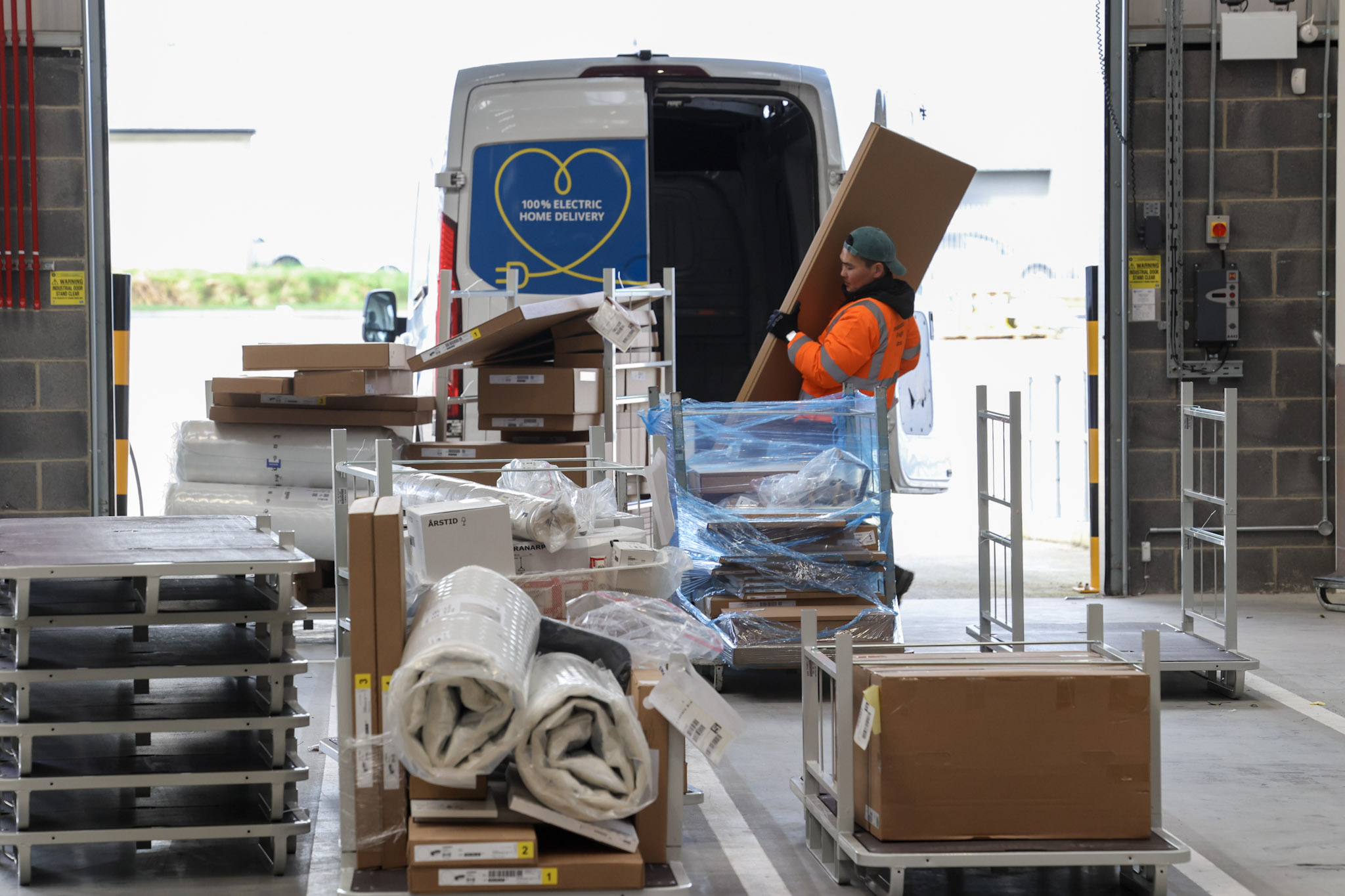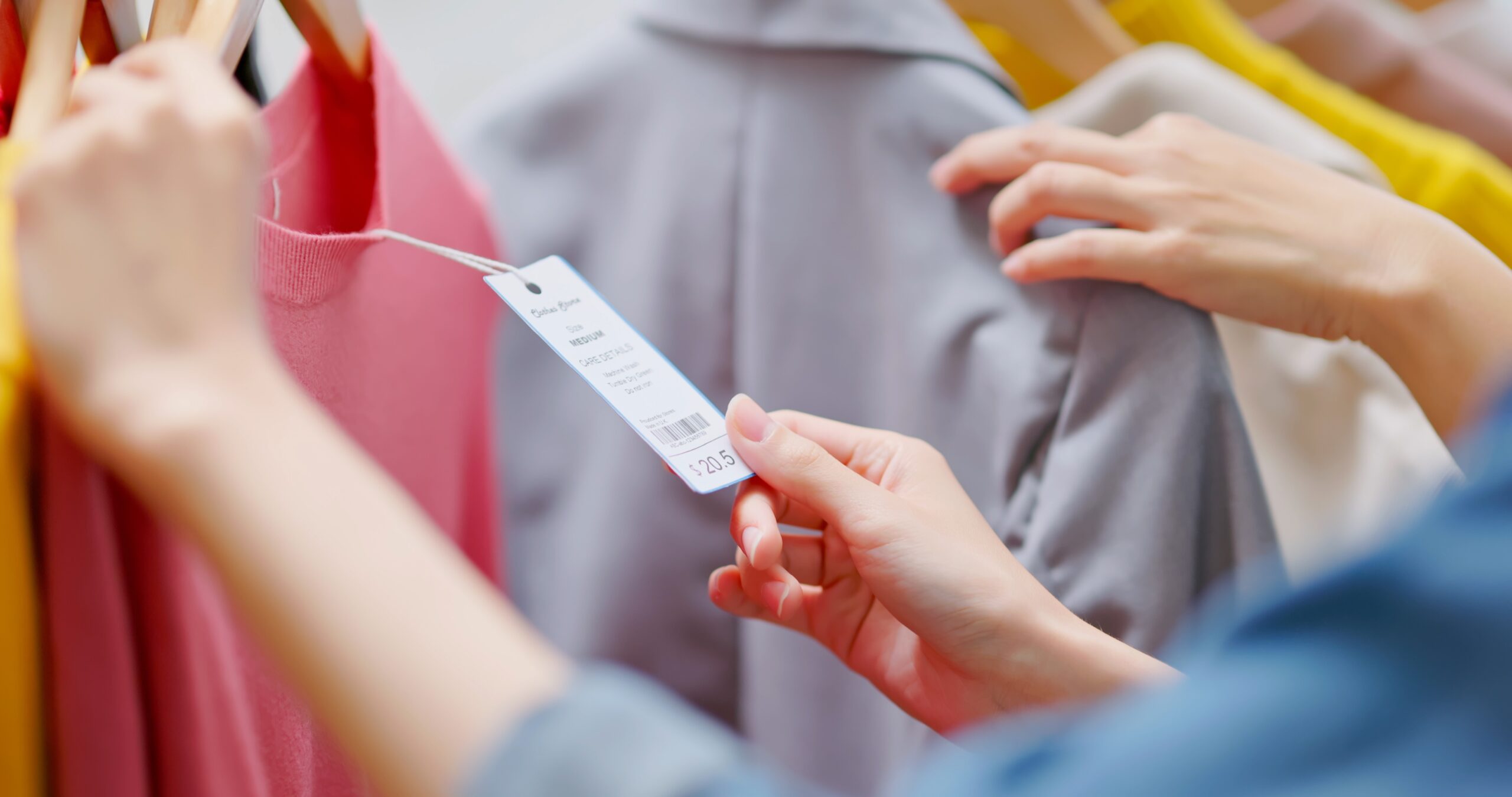We’re reporting on the effect of the Covid-19 coronavirus pandemic on the way UK shoppers buy – and on how retailers are responding to that changing behaviour. This update comes as 22,141 positive cases have been confirmed by Public Health England as of 9am on March 30 and 1,408 people have died.
Halfords shows how customers and staff stay safe in store
Halfords has released a film showing how it is keeping its workers and customers safe in store. As an essential retailer, the retailer has been able to keep its shops, selling motoring and cycling equipment, open. Measures include maintaining social distancing through services including online drive-in and click and collect as well as paper-free returns. Shoppers don’t come into the stores to browse but are served by a member of staff at a counter – with staff going to the shelves to retrieve all items that are sold.
Asos insists its warehouse is safe – but Matalan offers staff furlough option
Fast fashion retailer Asos insists that work in its Barnsley warehouse is safe to continue, with social distancing measures firmly in place, in response to survey findings from the GMB union that 98% of respondents said they felt unsafe to work. Read the full story here.
Meanwhile, Matalan’s warehouse staff will be offered furlough, in what the GMB has described as a win for common sense.
A spokesperson for Matalan said: “Along with the rest of the retail industry, we continue to operate our online business closely following the Government guidance, going above and beyond to ensure the safety of both our employees and our customers. Over the past few days, we are pleased to have received approval from both the Environmental Health Officer (the EHO) and a representative of the GMB, who have both visited our Knowsley DC and have both deemed the site safe to work. Furthermore, since these visits we shut down our warehouse for 3 days to undertake a deeper clean of the site.
“We are taking our responsibility as a large North West employer to look after our staff extremely seriously. We are therefore now going one step further and all our colleagues are being offered the option to stay at home and be placed in furlough from the 30th March for the time being. This will ensure that those who choose not to come to work, have access to government support packages where available.
“We will continue to operate online with continued strict health and safety regimes in place. Since the outbreak of Covid-19 we have closely followed the Government guidance and WHO and have operated our warehouses with a number of precautions in place to enhance everyone’s ability to operate safely. We have continuously increased these measures further as official advice has developed and will continue to do so.
“Matalan has been one of Britain’s household names for 35 years but never have we faced such difficult and unpredictable times. We want to thank all our colleagues for their hard work, support and dedication during this incredibly difficult time.”
Aldi loosens product limits as availability improves
Aldi says it’s now loosening the product limits on the items it sells in its stores as availability is restored.
It had previously limited every product to four per customer, but is now replacing that with limits on specific items. Shoppers will be able to buy two each of antibacterial hand gel, UHT milk and baby formula, and four each of a small range of items including canned foods, alcoholic drinks, nappies and toilet roll.
A spokesperson said: “While we would still encourage people to buy only what they need, product availability in store is good and the move will make it easier for people to shop for vulnerable people and those who are self-isolating.”
Nosto sees falling online sales of fashion, clothing and accessories
Online fashion, clothing and accessories sales have fallen by more than 30% in March in the US, UK, Germany, France and Sweden, new data from commerce experience platform Nosto suggests.
Nosto has tracked the performance of 271 retailers in these categories between March 1 and March 25 and found that visits, orders and sales started to drop in volume from March 7. The worst performing day was March 20, with sales revenue down by 32% and visits down by 24%. Average order value was down by 6% and conversions by 9%. In the US, sales were down by 27% but traffic by only 9%.
“Since that low-point on March 20th, the data shows some signs of a recovery beginning – with sales revenue and visits recovering somewhat in all countries, while conversion rates are staying relatively the same,” said Matt Levin, Nosto global head of marketing. “Increased traffic with stable conversion seems to mean these new shoppers are still buying at typical rates, which could be a result of merchants reacting with discounts and merchandising shifts, or consumer behaviour simply stabilising. As things continue to develop we’ll continue to monitor what is happening.”
Click here to see the full report.
FTA matches business vacancies and logistics workers through social media
The FTA says more than 150,000 logistics workers and business owners have engaged with its #LogisticsHelpsLogistics social media campaign. The campaign aims to help businesses keep goods and services flowing by filling shortfalls of staff or identifying vehicles with capacity during the Covid-19 pandemic. It encourages retailers and others in the sector to post job vacancies or requirements for support on social media, using the campaign hashtag – and those looking for work to show their availability. The FTA says more than 831,000 individuals in the sector have been reached in the first five days of the campaign via the Twitter, Facebook and LinkedIn platforms.
Elizabeth de Jong, policy director at FTA, said: “The British public is relying on the logistics sector to keep supermarkets and other essential retailers stocked with food, medicines, hygiene products and other basic items throughout the Covid-19 pandemic, as well as keeping loads moving for industry.
“Through the #LogisticsHelpsLogistics campaign, FTA is linking businesses in need of logistics staff with available workers. I would like to encourage everyone to get involved in the campaign – whether it is just by retweeting or sharing content – so we can work together as an industry to navigate the challenging times ahead.”
#LogisticsHelpsLogistics is supported by the Department for Transport and the Chartered Institute of Logistics and Transport. Please search for the hashtag #LogisticsHelpsLogistics on your preferred social media platform – Twitter, Facebook or LinkedIn – for more information and to get started.
Suppliers offer help to retailers and others
A number of suppliers to have come forward to offer help both to retailers and to others during the coronavirus pandemic. Storefront, which usually matches retailers with empty short-term retail, event and storage spaces in London, is now offering its platform to the Government, NHS trusts and charities that are looking to expand their operations in the city. They can get in touch with Storefront at hello@thestorefront.com.
Storefront chief executive Mohamed Haouache said: “As the global crisis has escalated we have been racking our brains as to how we could potentially help. We are not doctors nor are we involved in the creation, supply or distribution of essential goods. We match people with spaces and venues to meet their needs. We would like to offer our services in locating space for responses to the Coronavirus threat.
“We have spaces and empty buildings across London. We can speak directly to landlords and request the use of any spaces that may be useful. Thanks to the generosity of our real estate partners, we are able to offer this for free. These could be used for storage and logistics but at a push they could be utilised as emergency accommodation and, should it come to it, temporary medical facilities.”
Platform provider Adzooma is giving some businesses free access to its platform until at least June 20. Agencies, small businesses, and those who use Google, Microsoft or Facebook to showcase their business or services will get free access to help businesses keep their online presence alive during the coronavirus outbreak. Existing agency and SME clients will not be billed during the period.
Rob Wass, co-founder and chief executive of Adzooma, said: “It’s been a challenging time for everyone, with companies feeling the pinch and uncertain of their future.
“We felt the best way for Adzooma to support not just our clients, but all agencies and SMEs was to temporarily open access to the full Adzooma platform, free of charge, in order to help companies through that drop and recovery.
“We realise that the services we provide are not on the frontline in this global effort. Our gratefulness to doctors, nurses, police, fire, teachers and delivery drivers – everyone who is risking their own health and wellbeing and acting so selflessly under unprecedented circumstances – cannot be understated. We all owe them our wholehearted thanks and praise. Similarly, global governments seem to be awakening to the challenge and making the big, impactful decisions that will support us all through this and into the future.”
The tech company is also currently in talks with Microsoft to create a support system that will deliver advice, tips, and support through tools such as webinars – and plans to roll out similar approaches with advertising partners including Google and Facebook.
High street retailers and online traffic: Awin
High street retailers saw online traffic increase when they closed their shops before they were asked to, analysis from the Awin affiliate network suggests.
The network found that online traffic to department stores and clothing and beauty brands fell by 6% year-on-year between Friday March 20 and Monday March 23. However, those brands that decided to close their high street stores before the lockdown was imposed by government saw their online traffic go up over that same period by 12%.
Over the weekend of March 20, Awin found that sales of fitness products were up by 53% compared to February, with basket values up by 42%. Sales of digital television and video-on-demand were also up by 174%, compared to the same time last year. And alcohol sales increased by 371% from the week of March 16 compared with the previous year, and increased by 300% on Friday March 20, after pubs were forced to close.
Takeaway orders, it found, have increased but not very significantly. The biggest day was Mother’s Day on Sunday March 21 – but volumes were still 23% less than on February 14.
A spokesperson for awin.com said: “We are no doubt living in unprecedented times, and there has by necessity been a massive shift in our shopping habits. As appetite for items relevant to isolation increases exponentially, retailers need to adapt and find their place in this ever-changing situation.”
New figures suggest the scale of supermarket pandemic spending – online and in-store
Shoppers spent an extra £1.9bn on groceries in more than 79m extra shopping trips in the last four weeks as they prepared for lockdown in the coronavirus outbreak, new analysis from Nielsen suggests. Online sales grew by 14% at the same time. Here’s the full story.
Fashion buyers find new ways to talk to suppliers: analyst
Now that non-essential travel is on hold, technology is now taking a front seat in communication between clothing brands and their suppliers, says one analyst.
Michelle Russell, apparel correspondent at data and analytics company GlobalData says: “Buyers are now having to rethink how they work with manufacturers on orders and product design.”
Russel says UK clothing and homewares retailer Next is looking at a number of different scenarios to make up for the lack of face-to-face contact with its suppliers, including video conferencing. Its teams would previously have travelled to factories to work on new product development, but are now asking manufacturers to send samples over. Video conferencing, with one sample at each end, is helping to recreate the process.
Software companies are also stepping in to help, particularly as more employees start working from home to try and stop the spread of the virus.
Russell says: “Companies are now having to find new ways of staying in touch that they maybe haven’t considered previously. So having the right technology in place to enable a company to keep communication flowing across its supply chain has now become imperative if they want to remain operational.
“Next says it will come out of the process with the ability to communicate with potentially more manufacturers than it was previously, and this may be the case for many retailers and brands. They will inevitably find more efficient and cost effective ways of working once this pandemic is over and normal business is resumed.”
Independent online retailers see online orders rise
Independent online retailers in the UK are taking, on average, 23% more orders this March than in 2019, according to new data from James and James Fulfilment. Categories from health supplements to store cupboard ingredients have benefited in particular, with some seeing a triple-digit growth in orders between the last week of February and third week of March.
There is not only increased demand for essentials, but also home entertainment and fitness products, such as board games, journals and yoga mats. This suggests that shoppers are considering their families’ mental wellbeing, as well as physical health, as they self-isolate at home.
The fashion and beauty sectors have fared less well, with decreased orders across accessories, clothing, cosmetics and jewellery.
The data is based on the order volume of nearly 300 independent online retailers. James Hyde, chief executive and co-founder of James and James, said: “It’s clearly an uncertain time for people, who are adjusting to new ways of living at home, and retailers, who are struggling with peaks and troughs in demand. With retail being such an important part of the economy, it’s vital that we pull together to support both our current clients and any other retailers that are looking to ecommerce to survive.
“With lockdown now in force, companies like ours will play an ever-critical role over the coming months, in getting essential products to the people who need them – after all, for every 1,000 orders delivered to homes, we remove the need for 1,000 visits to shops.”
Ikea converts stores to ecommerce fulfilment centres
Ikea is converting its stores into ecommerce fulfilment centres. Services including drive-through click and collect and contactless deliveries are operating as the homewares retailer puts stores that are now closed to work to support online sales. Currently around 282 out of 380 Ikea stores around the world operated by Ingka Group are temporarily closed, although all of its stores in China have now reopened, except for the one in Wuhan.
In-store, customers and co-workers are being protected with increased hygiene practices, new routines and physical distancing in order to make stores safe locations for online orders to be packed. The retailer is also launching its mobile app (pictured) into more countries.
“We are still adjusting to this new reality but are doing all we can to ensure business continuity for the future and continue to make people’s lives at home better,” said Jesper Brodin, chief executive of the Ingka Group which owns the Ikea brand.
“We do not know when this challenge will be behind us, but by working together we believe we will emerge stronger than ever,”
The retailer says it will waive rents and service fees to occupants of the shopping centres that it runs as long as shops are closed as a result of government action. It is also promising in-kind support worth €26m to those affected by coronavirus. In the 30 countries where it operates, its businesses will prioritise the needs of high risk groups and those leading relief efforts as they supply items such as beds, bedding, food and toys to hospitals, medical centres and shelters.
The retailer says it’s a priority to ensure that it can secure the livelihoods of as many of the more than 166,000 people it employs around the world as as possible. As well as keeping operations open through ecommerce, its also offering extra parental leave for those at home with children and providing more flexible working arrangements. A long-term plan will develop as the situation evolves.
“We are guided by a simple, yet powerful vision of creating a better everyday life for the many people,” said Brodin. “It is forever part of our business and guides us no matter how good or challenging times are. Our focus is now on accelerating the actions we are taking to help the communities most affected and supporting the many people and our partners across the world.”
Aldi gives emergency workers priority access to its stores
Supermarket Aldi says that NHS, police and fire service workers will now get priority access to its stores at any time of the day.
Emergency workers with a relevant ID will be able to get into stores as soon as social distancing guidelines in force in any given shops allow.
Aldi says the move means that “those who may be finding it hard to shop for groceries due to working long shifts to protect others will not have to wait in queues outside store before being able to buy what they need”.
Hammerson says it will work with its tenants
Hammerson says that it is working with the retailers who occupy shopping centres and retail parks at a time when non-essential shops are now closed in line with government guidance. Around 4% of the shops in its flagship shopping centres are currently deemed essential shops that are able to continue trading.
The retail developer and centre operator says in a Covid-19 update today: “We believe we should support our occupiers, particularly smaller and independent brands that are less resilient to the closure of their space in our centres. We have received a variety of requests for rent deferrals, monthly payments and waivers, which we are reviewing on a case-by-case basis, taking into account the business model and risk profile of the occupier, alongside the aid made available by the relevant governments.”
The company said that by the end of March 27 it had received 37% of its rents due on the March quarter day (March 25). When adjusted for agreements to defer or move to monthly payment, 57% of rent has been paid. The figures were expected to increase as temporary agreements are put into practice. So far, 35% of rent in flagship sites has been paid, and 55% of rent that is currently expected. On its other sites, including retail parks, 49% of rent has been collected, and 61% of expected rents.
In France its centres are all closed except for essential retailers (3% of rents), while in Ireland essential retail accounts for 8% of its rents.
Hammerson has decided to pull its dividend for the 2019 financial year, and says it is suspending all existing guidance on earnings, income, assets and cashflow. The business currently has access to £1.2bn in unused lending. “We will continue to closely monitor the developing situation and update the market as appropriate,” it said today.
Online shoppers face long queues for service
The Boots website today illustrates the kind of waits that shoppers are facing for service.
Visitors to the website this morning were faced with queues of around an hour to be able to buy online. When InternetRetailing visited the Boots website just after 9.30am today, it was 44,768 in the queue, with more than an hour to wait.
Mothercare expects ’material impact’ on short-term revenues
Mothercare says it is feeling the effect of Covid-19 on its business at a time when it has “substantially completed” its transition from retailer to brand and is now ready to grow its business in partnership with franchisees around the world.
It expects a “material impact” on short-term revenues through its franchise partners around the world as shops close and customers stay at home.
The company says that about 430 retail staff, who work in its Boots Mini-Club business, are now on furlough while head office staff work from home. In the UK, it now expects that it will see its products sell online and via branches of Boots towards the end of the summer. The full story is here.
Image courtesy of Ikea









